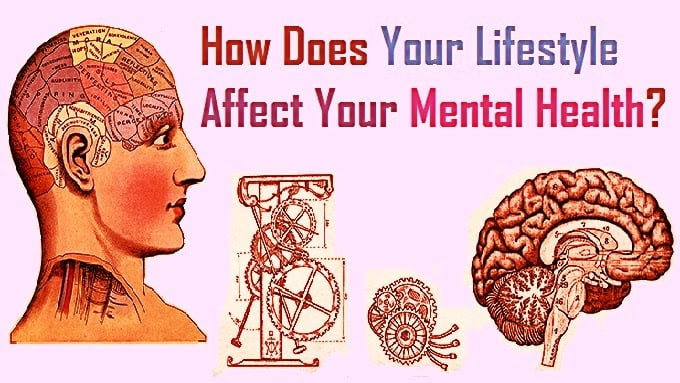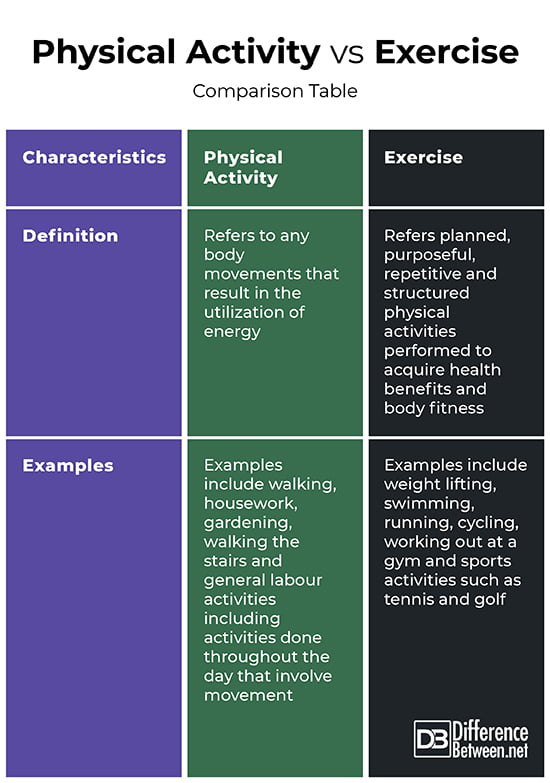In today’s fast-paced world, it’s easy to get caught up in the hustle and bustle of everyday life. We often find ourselves juggling multiple responsibilities, leaving little time for self-care. However, amidst the chaos, we must remember the importance of maintaining a healthy lifestyle. And one key component of that is exercise. So, let’s dive in and explore the question: “How does exercise contribute to a healthy lifestyle?”
When it comes to staying fit and healthy, exercise is like the magic potion that keeps everything in balance. Not only does it help us maintain a healthy weight, but it also boosts our energy levels and improves our overall mood. You know that feeling of euphoria you get after a good workout? That’s your body releasing endorphins, those little happiness molecules that make you feel on top of the world. So, grab your running shoes or roll out your yoga mat, because we’re about to uncover the incredible benefits of exercise and how it contributes to a healthy lifestyle. But first, let’s take a moment to appreciate the wonders of physical activity.

How Does Exercise Contribute to a Healthy Lifestyle?
Regular exercise plays a crucial role in maintaining a healthy lifestyle. Not only does it help in weight management, but it also has numerous other benefits for both physical and mental well-being. Incorporating exercise into your daily routine can lead to improved cardiovascular health, increased strength and endurance, enhanced mood, and reduced risk of chronic diseases. Let’s explore the various ways in which exercise contributes to a healthy lifestyle.
The Physical Benefits of Exercise
Regular exercise has a profound impact on our physical health. Firstly, it helps in maintaining a healthy weight by burning calories and increasing metabolism. Engaging in activities like jogging, swimming, or cycling can help you shed excess pounds and prevent weight-related health issues such as obesity and diabetes.
Exercise also strengthens the cardiovascular system, reducing the risk of heart disease and stroke. When you engage in aerobic exercises like running or brisk walking, your heart pumps more blood, which improves circulation and lowers blood pressure. This, in turn, can decrease the chances of developing cardiovascular conditions and promote overall heart health.
Furthermore, exercise enhances muscle strength and endurance. Strength training exercises, such as weightlifting or resistance training, help build lean muscle mass, increase bone density, and improve joint stability. This not only makes you physically stronger but also reduces the risk of injuries and age-related conditions like osteoporosis.
Improved Mental Well-being
Exercise is not just beneficial for the body, but it also has a positive impact on mental health. Engaging in physical activities releases endorphins, also known as the “feel-good” hormones, which elevate mood and reduce feelings of stress and anxiety. Regular exercise has been shown to alleviate symptoms of depression and improve overall mental well-being.
Exercise also enhances cognitive function and boosts brain health. Physical activity increases blood flow to the brain, which stimulates the growth of new neurons and improves memory and learning abilities. Studies have shown that individuals who engage in regular exercise have a lower risk of cognitive decline and neurodegenerative diseases like Alzheimer’s.
In addition, exercise promotes better sleep quality. Regular physical activity can help regulate sleep patterns, making it easier to fall asleep and improving the overall duration and quality of sleep. A good night’s sleep is essential for optimal physical and mental performance, as well as for overall health and well-being.
In conclusion, exercise is a crucial component of a healthy lifestyle. It offers numerous physical benefits such as weight management, improved cardiovascular health, and increased strength and endurance. Additionally, exercise has a significant impact on mental well-being by reducing stress and anxiety, improving mood, and enhancing cognitive function. So, lace up your sneakers and make exercise a regular part of your routine to reap the countless benefits it has to offer.
Key Takeaways: How Does Exercise Contribute to a Healthy Lifestyle?
- Exercise helps keep your body fit and strong.
- Regular physical activity improves your mood and reduces stress.
- Exercise boosts your energy levels and improves sleep quality.
- Being active can lower the risk of chronic diseases like heart disease and diabetes.
- Engaging in exercise with friends or family can be fun and enjoyable.
Frequently Asked Questions
What are the benefits of exercise for a healthy lifestyle?
Exercise plays a crucial role in promoting a healthy lifestyle. Not only does it help in maintaining a healthy weight, but it also strengthens muscles and bones, improves cardiovascular health, and boosts overall mental well-being. Regular exercise has been linked to a reduced risk of chronic diseases such as heart disease, diabetes, and certain types of cancer. Additionally, it can enhance immune function and improve sleep quality. Incorporating exercise into your daily routine can significantly improve your physical and mental health.
Moreover, exercise can also increase energy levels and improve productivity. It releases endorphins, which are natural mood enhancers, and reduces stress and anxiety. By engaging in physical activity, you can experience increased self-confidence and a greater sense of accomplishment. Overall, exercise is a powerful tool that contributes to a healthier and happier life.
How does exercise help in weight management?
Exercise is an essential component of weight management. When you engage in physical activity, your body burns calories, helping to create an energy deficit that can lead to weight loss. Regular exercise also helps to build and maintain muscle mass, which can increase your metabolic rate and aid in weight management. Additionally, exercise can help to curb cravings and reduce emotional eating, contributing to a healthier relationship with food.
Furthermore, exercise can improve body composition by reducing body fat percentage and increasing lean muscle mass. This not only enhances physical appearance but also improves overall health. Combined with a balanced diet, exercise is an effective strategy for achieving and maintaining a healthy weight.
Can exercise improve heart health?
Absolutely! Exercise has numerous benefits for heart health. Regular physical activity strengthens the heart muscle, making it more efficient at pumping blood throughout the body. This helps to lower blood pressure and reduce the risk of heart disease. Exercise also increases the levels of high-density lipoprotein (HDL) cholesterol, which is often referred to as “good” cholesterol as it helps to remove harmful low-density lipoprotein (LDL) cholesterol from the bloodstream.
Moreover, exercise improves blood circulation and promotes the growth of new blood vessels, enhancing overall cardiovascular function. It can also reduce inflammation and oxidative stress, which are known risk factors for heart disease. By incorporating regular exercise into your routine, you can significantly improve your heart health and reduce the risk of developing cardiovascular conditions.
How does exercise impact mental well-being?
Exercise has a profound impact on mental well-being. Physical activity stimulates the release of endorphins, which are chemicals in the brain that act as natural mood elevators. This can help reduce symptoms of depression and anxiety, and promote feelings of happiness and relaxation. Exercise also increases the production of brain-derived neurotrophic factor (BDNF), a protein that supports the growth and function of brain cells.
Furthermore, exercise can improve cognitive function and memory, as well as enhance focus and concentration. It provides a healthy outlet for stress and can boost self-esteem and self-confidence. Regular exercise is also associated with better sleep quality, which is crucial for overall mental health. By incorporating exercise into your daily routine, you can experience significant improvements in your mental well-being.
What are the long-term benefits of exercise for overall health?
The long-term benefits of exercise for overall health are extensive. Regular physical activity can help prevent and manage chronic conditions such as obesity, heart disease, type 2 diabetes, and certain types of cancer. It strengthens the immune system, making you less susceptible to illnesses and infections. Exercise also improves bone density, reducing the risk of osteoporosis and fractures.
In addition, exercise promotes longevity by slowing down the aging process and improving quality of life. It increases mobility and flexibility, reducing the risk of falls and injuries. Regular exercise also enhances brain health and can lower the risk of cognitive decline and dementia. By making exercise a lifelong habit, you can reap these long-term benefits and enjoy a healthier and more fulfilling life.

Exercise, Nutrition, and Health: Keeping it Simple | Jason Kilderry | TEDxDrexelU
Final Summary: The Power of Exercise in Living a Healthy Lifestyle
In conclusion, exercise is a vital component when it comes to leading a healthy lifestyle. It not only helps to improve physical fitness but also has a plethora of other benefits for our overall well-being. Regular exercise contributes to weight management, boosts mood, enhances cognitive function, strengthens the immune system, and reduces the risk of various chronic diseases.
By incorporating exercise into our daily routine, we can increase our energy levels and improve our cardiovascular health. Whether it’s going for a jog, hitting the gym, or participating in a fun sport, finding an activity that we enjoy can make exercise an enjoyable and sustainable part of our lives. It’s not just about the physical benefits, but also the mental and emotional ones. Exercise releases endorphins, those feel-good hormones that can uplift our mood and reduce stress levels.
So, let’s lace up our sneakers, grab our yoga mats, or jump into that swimming pool. Let’s make exercise a priority and embrace the incredible impact it can have on our overall health and well-being. Remember, a healthy lifestyle is within our reach, and exercise is the key that unlocks its many benefits. Start today and reap the rewards for a lifetime.





